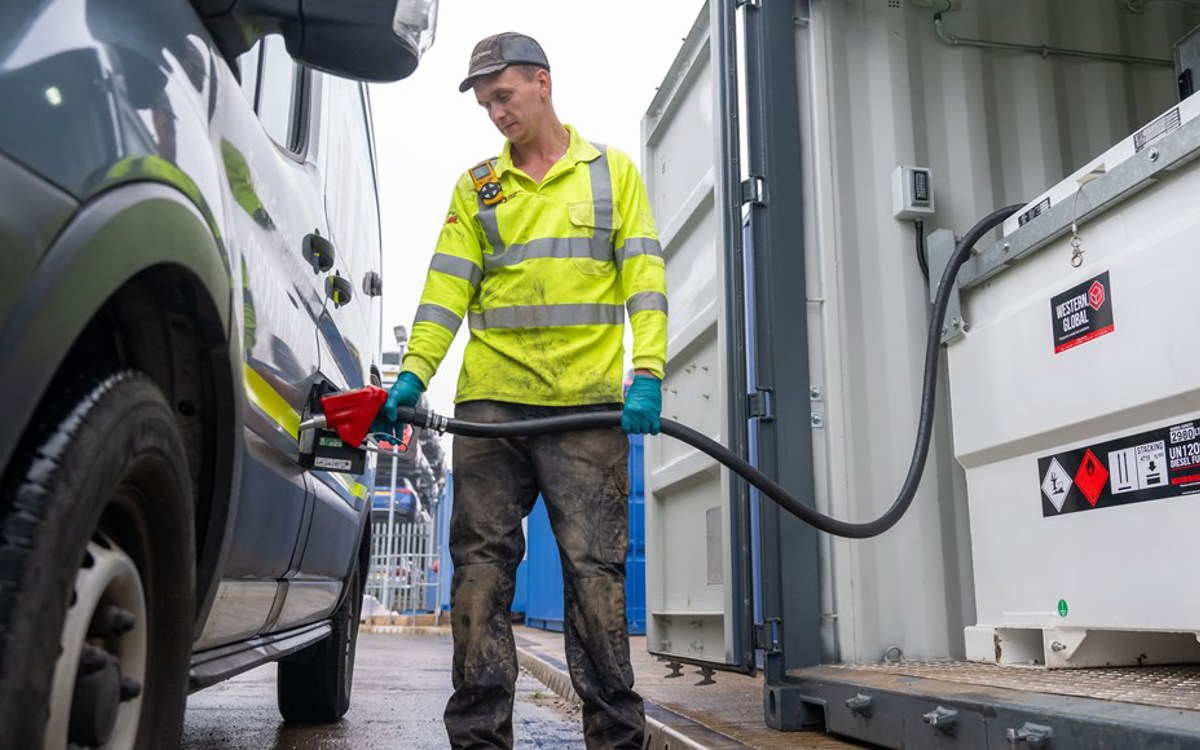Pioneering Gloucester project gets the GREEN light for carbon emissions savings

Gas emergency and pipeline company, Wales & West Utilities has wrapped up Project GREEN (Gloucestershire Reducing Emissions in the Energy Network), a first-of-its-kind initiative to trial the use of emission-reducing tools and techniques in daily operations, delivering 60 tonnes of CO2 savings.
The project, which ran for seven months out of the company’s Gloucester depot, saw the gas emergency service’s usual equipment swapped out for lower- or zero-emission alternatives, including solar, hydrogen, and battery-powered options, as well as hydrotreated vegetable oil biofuel (HVO). It sought to gain an understanding of how the company’s Net Zero ambitions could be combined with business-as-usual activities to assess their suitability and how they can be adopted for future use.
During the project 60 tonnes of CO2 were saved, the equivalent of driving around 353,000km (219,500 miles) in an average car, or nine times around the world.
The project was the first of its kind among the UK’s gas networks and is part of Wales & West Utilities' wider ambition to reach Net Zero emissions within its operations, which currently account for around 70% of its total emissions. It marks a significant step towards fostering sustainable practices within the energy sector.
Jake Sami, Project Engineer at Wales & West Utilities, explains:
“The Gloucester area was chosen for Project GREEN due to its geographical size and duration of the works, as it provided a comprehensive and complex environment ideal for testing innovative approaches. The strong support from Business-as-Usual (BAU) teams further ensured the project could be effectively integrated with day-to-day operations.
“This aligns with our broader ambition to combine BAU activities with our Net Zero goals, embedding innovation into routine practice wherever possible.
“Project GREEN brought together several gas mains replacement projects into a unified effort to reduce emissions and engage local communities through environmental and biodiversity improvements.”
Merging BAU activities with innovative, low-emission solutions, the trial assessed the environmental impact of various tools and equipment and determined their suitability for ongoing use for the 24/7 gas emergency service.
Part of Project GREEN was the Cole Avenue Case Study, an area undergoing maintenance work in Gloucester. This study helped provide a calculator tool to assess emissions saved, costs, and time needed for different equipment and procedures when undertaken commissioning and decommissioning of gas mains.
Overall, the trial demonstrated significant carbon emissions savings, and in many cases, the green alternatives outweighed the performance of the current diesel-powered tools.
Key trials and findings included:
- Battery Electric Equipment: Tools such as the battery electric wacker, Stihl saw, and fusion box were tested, offering zero emissions, reduced noise, and lower maintenance requirements.
- Boss Deep Green Sustainable Welfare Unit: The solar-powered unit, trialled over four weeks, significantly reduced emissions and noise compared to standard diesel-powered units. Features included energy storage, remote monitoring, and water management.
- HVO Fuel: HVO fuel was used in place of diesel for vehicles and equipment over a 27-week period, reducing emissions against diesel alternatives.
Head of Net Zero & Sustainability at Wales & West Utilities, Matt Hindle, commented:
“We are extremely proud of the efforts of our Gloucester Depot team in delivering complex engineering work with novel equipment, which reduced our impact on the environment. Project GREEN successfully proved the potential for greener tools and equipment in the commissioning and decommissioning of mains.
"We saw substantial environmental savings through the adoption of lower-emission equipment, saving around 60 tonnes of CO2 emissions. Most of the tools trialled were quieter, with less vibration and easy mobility – including the Boss Cabin Unit which proved easier for the team to drop off and pick up.
“The insights gained will guide our decisions, with the aim of integrating similar options in future projects where we can, to support our net zero ambitions.”


